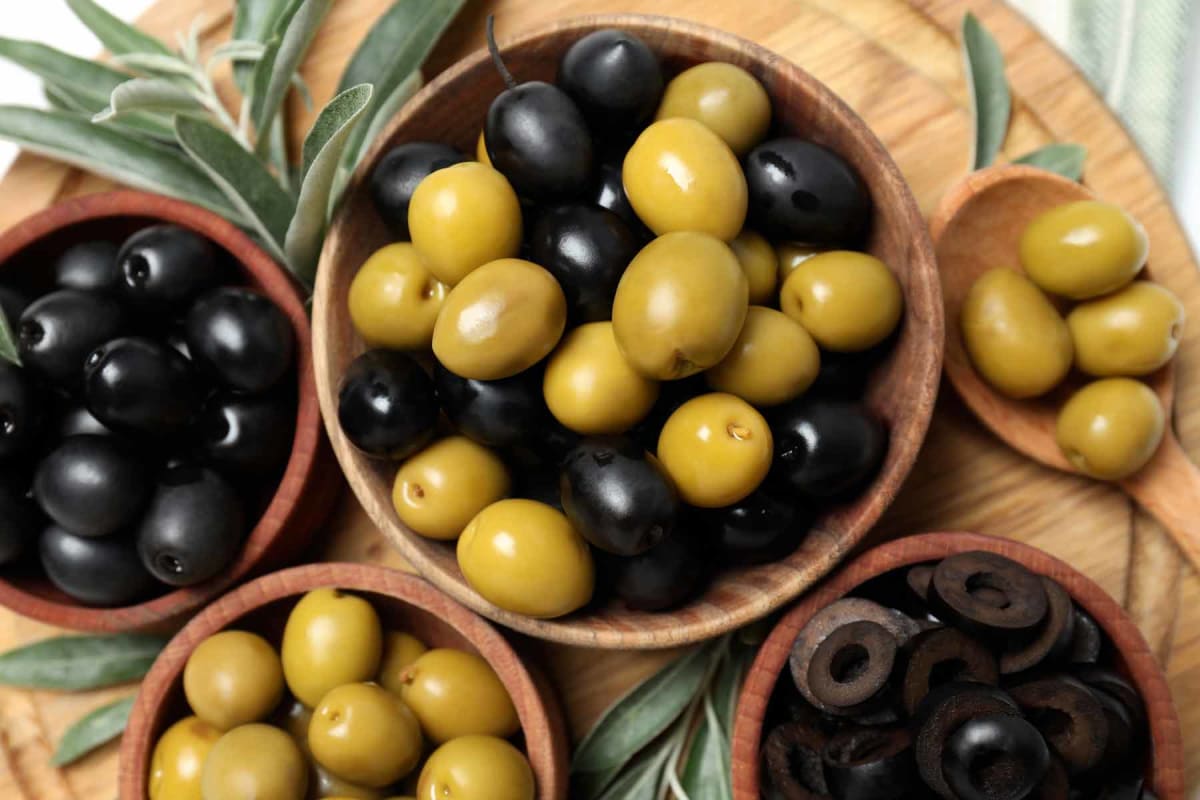
Can dogs eat olives?
Can dogs eat olives?
Can dogs have olives?
When it comes to olives, whether they're on a pizza, in a salad, or part of your charcuterie board, you might wonder if sharing them with your dog is safe. The short answer is yes, dogs can eat olives as an occasional treat, as long as the olives are unseasoned and you remove the pits first.
Olives contain healthy fats, vitamins E and A, and protein that can offer some nutritional benefits. However, not all olives are created equal, and some could cause harm to your precious pup. Let's dive into everything you need to know about dogs and olives.
Are olives safe for dogs?
Plain olives without any additives, seasonings, or fillings are safe for most dogs. However, there are some important considerations to keep in mind before sharing this Mediterranean treat with your furry friend.
The main concern with olives is their high sodium content, especially in canned or jarred varieties. Too much salt isn't good for dogs and can lead to increased thirst, urination, and potentially sodium ion poisoning in extreme cases.
Additionally, olive pits present a choking hazard and could potentially damage your dog's teeth or cause an intestinal blockage if swallowed. Always remember to remove the pit before giving an olive to your dog.
Can dogs eat black olives?
Plain black olives are safe for dogs in small amounts. These olives are harvested when fully ripe and often contain more beneficial antioxidants than their green counterparts. When offering black olives to your dog, always ensure they're plain without any additives like garlic or onion, which are toxic to dogs.
Can dogs eat green olives?
Like black olives, plain green olives can be safe for dogs in moderation. Green olives are harvested before ripening and may have a slightly different nutritional profile than black olives, but both types offer similar benefits and concerns.
Be particularly cautious with stuffed green olives. Popular fillings like blue cheese, garlic, jalapeños, or anchovies might upset your dog's stomach or even be harmful. Always stick to plain, unseasoned green olives for your pup.
Can dogs have olive oil?
Small portions of a plain, high-quality extra virgin olive oil without added spices or flavorings can be a healthy addition to your dog's diet. It contains healthy monounsaturated fats, antioxidants, and anti-inflammatory properties that may benefit your dog's skin, coat, and overall health.
A small drizzle (about a teaspoon for small dogs or a tablespoon for larger breeds) mixed into your dog's regular food occasionally can help with constipation and may promote a shinier coat. However, too much can cause diarrhea or pancreatitis in sensitive dogs.
When are olives bad for dogs?
While plain olives are safe for most dogs in moderation, there are several situations where olives can be harmful to your canine companion.
Seasoned, marinated, or stuffed olives often contain ingredients that are toxic to dogs, such as garlic, onions, blue cheese, and excessive salt. Always avoid these varieties when treating your pup.
Dogs with certain health conditions, particularly those with sensitive stomachs, pancreatitis, or sodium-related issues like heart disease, should avoid olives altogether. The fat and salt content could exacerbate these conditions.
The pits inside olives pose serious risks including choking, intestinal blockage, and dental damage. Always remove pits before sharing olives with your dog.
The high fat content in olives can cause gastrointestinal upset in some dogs, leading to vomiting or diarrhea.
If you notice any negative reactions after giving your dog olives, discontinue offering them immediately and contact your veterinarian.
Safer dog treats
While olives might be an occasional safe treat, there are many healthier foods dogs can eat in their treat rotation, including:
Fresh vegetables like carrots, green beans, or cucumber slices make excellent low-calorie crunchy treats that most dogs love. They're lower in sodium and fat than olives while providing beneficial fiber.
Many fruits are safe for dogs and more nutritious than olives, including apple slices (no seeds), blueberries, or small pieces of watermelon (no seeds or rind). These provide natural sweetness and important vitamins.
For protein-rich treats, small pieces of plain cooked chicken, turkey, or beef can be more appealing to most dogs than olives. Just be sure they're unseasoned and free of bones and skin.
Commercial dog treats designed specifically for canine consumption are always a reliable choice. Look for options with simple, natural ingredients and appropriate sizing for your dog.
The best treats for your furry friend will always be those specifically formulated for dogs' nutritional needs. If you have any concerns about your dog's diet or observe adverse reactions after introducing any new food, including olives, consult your veterinarian for personalized advice.